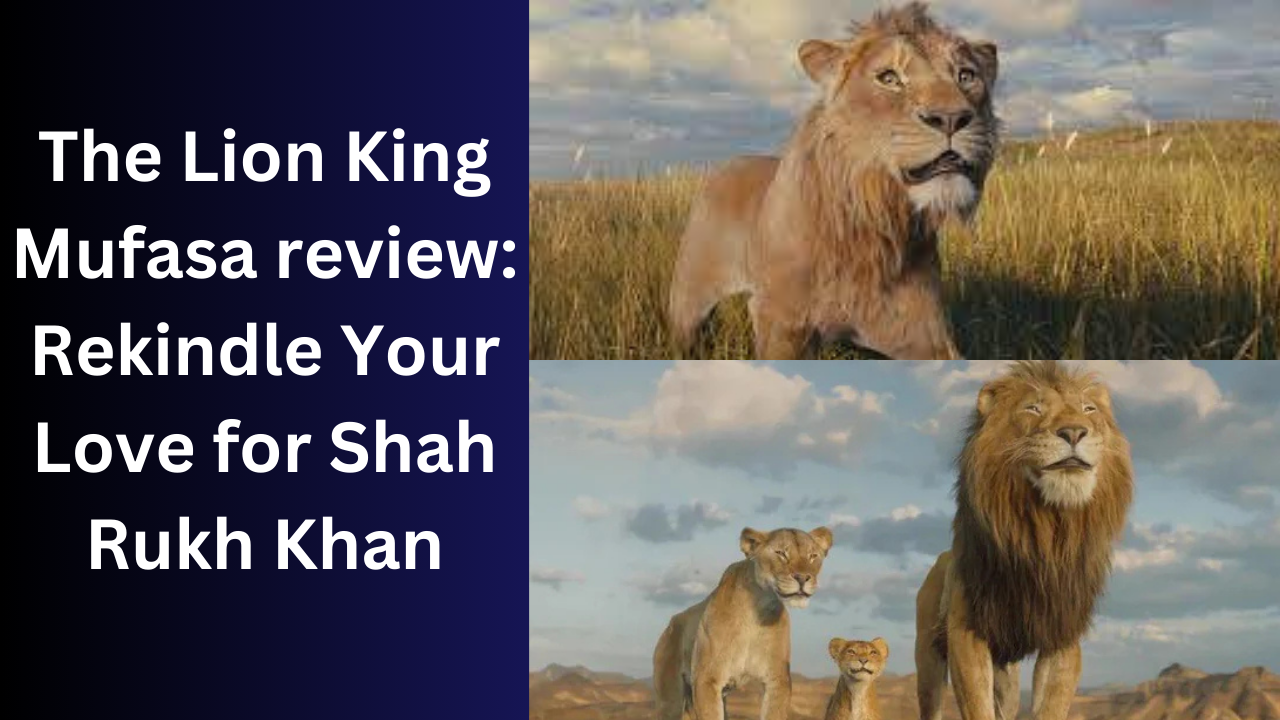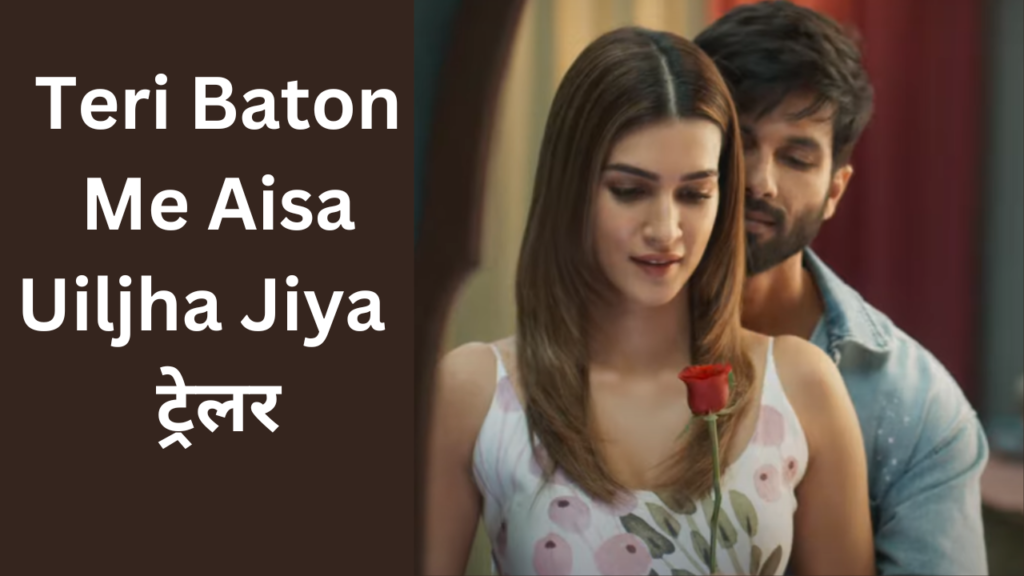The Lion King Mufasa review: It floats on the shoulders of a strong story about friendship and family, loyalty and treachery, and humor.

Unquestionably, there is a certain resonance when the King of Bollywood lends his voice to the cub who would become the Lion King. It elevates the Hindi dubbing of Mufasa: The Lion King, a Disney movie that is already available countrywide in Telugu, Tamil, and the original English, to a level that would have been much above the capabilities of any other performer.
As the adventures of an orphan lion cub rejected as a ghuspethiya (infiltrator) unfold in a stunningly realized animated musical, your skepticism about the lions and other animals speaking and singing in Hindi will vanish as soon as Shah Rukh Khan’s voice takes over.
Despite being a lion, SRK’s amorous aura comes through in both the language he utters and the dramatic scenes in the movie. In a tale that is far more than that, you can practically picture the celebrity displaying his signature charm as he navigates the highs and lows of love.
Mufasa: The Lion King, written by Jeff Nathanson and directed by Barry Jenkins (Moonlight, If Beale Street Could Speak), soars on the back of a sturdy tale of family and friendship, bonding and betrayal, and humour and heft pieced together meticulously and delivered with sustained sinewy skill.
The 2009 film The Lion King, which was a technologically advanced reimagining of the 1994 Disney original, has a prequel called Mufasa: The Lion King. Eye-popping authenticity of muscle movements and expressions define its tone and texture. As a result, the movie is bursting with energetic and immersive energy.
It may be argued that everything on the screen is too well-polished and Photoshopped to accurately capture the tumultuous vibrations of a forest where animals—many of them deadly predators—roam freely. However, what ultimately makes Mufasa: The Lion King the unforgettable experience that it is is the astounding energy of the incredibly accurate animation and the technical mastery of the background images.
Mufasa: The Lion King has the dramatic volume and range that can fill the depth and breadth opened up by the emotions and banter in a story of a lost orphan cub discovering, if only reluctantly, his destiny, home, kingdom, and a newly-created perch from which he is destined to roar and rule. One can hear and feel the animals breathe, snarl, and grunt, and Shah Rukh Khan leads the pack with a voice dripping wisdom and wistfulness.
A young and naive Mufasa (voiced by AbRam Khan) asks, in all his wide-eyed innocence, early in the movie after being split up from his parents: Ghar ka raasta pata hai aapko (Do you know the way back home)? In response, Queen Eshe, the mother figure who represents the absent biological one, says: Ghar ka raasta kho kar hi milta hai (You have to go lost in order to find your way back).
Rafiki, his wise old shaman-friend (Makarand Deshpande), tells his granddaughter Kiara the rites-of-passage origin story of Mufasa. Kiara was left by her parents, Simba (Aryan Khan) and Nala (Neha Gargava), in the care of the voluble Pumbaa (Sanjay Mishra) and the wise-cracking Timon (Shreyas Talpade). In anticipation of the arrival of a new family member, the couple has moved.
Rafiki plays a huge role in the Mufasa storyline. Because he differs from the others, his own people have disowned him. As a result, when Mufasa speaks to the animals in the face of an impending threat from a shared foe, he encourages them to do what comes naturally to him: put aside their disagreements and unite in defense of the cause.
The main theme of the story is being flung by fate far from home and then searching for a dreamland, which is called Milele, which means forever or eternal, and is filled with the hope of peace and harmony that will continue forever. The foundation of the hunt is Mufasa’s relationship with Taka, the current King’s son. Taka is content to live his life as he pleases and is not particularly interested in taking over his father’s position of authority.
A triangle of love develops between the two lions and Sarabi (Mamta Gurnani), who is also searching for her way home, instead of a struggle for the throne of the Pride Lands (translated in Hindi as Gaurav Bhoomi, which clearly lacks the pun inherent in English) that threatens to drive a wedge between Mufasa and Taka, who treats the former as the brother that he always wanted.
In order to neutralize the threat Mufasa offers to his reign over the animal kingdom, Kiros, the malevolent King of a pride of white lions, exploits the rift between Taka and Mufasa.
The dialogue is heavily influenced by Bollywood’s preferred standard tapori street lingo, as is the case with practically every Hindi adaptation of a Hollywood film of this kind. Although it’s all for fun, a lot of it seems totally inappropriate for the environment in which The Lion King is situated. In any case, it accomplishes its goal: it gives the movie a Desi feel that will appeal to viewers accustomed to Hindi popular cinema’s idioms.
However, nothing at all will entice Indians to the theaters more than Mufasa’s Hindi-speaking parodies of SRK’s on-screen character. The moment Mufasa sings “Main Hoon Na” to the lioness he has fallen in love with is a work of absolute magic, even though we only hear the star’s voice and do not see him on screen. The movie pulls itself free from its Hollywood anchors and embraces the world that the celebrity and his followers live in with open arms, a la SRK.

